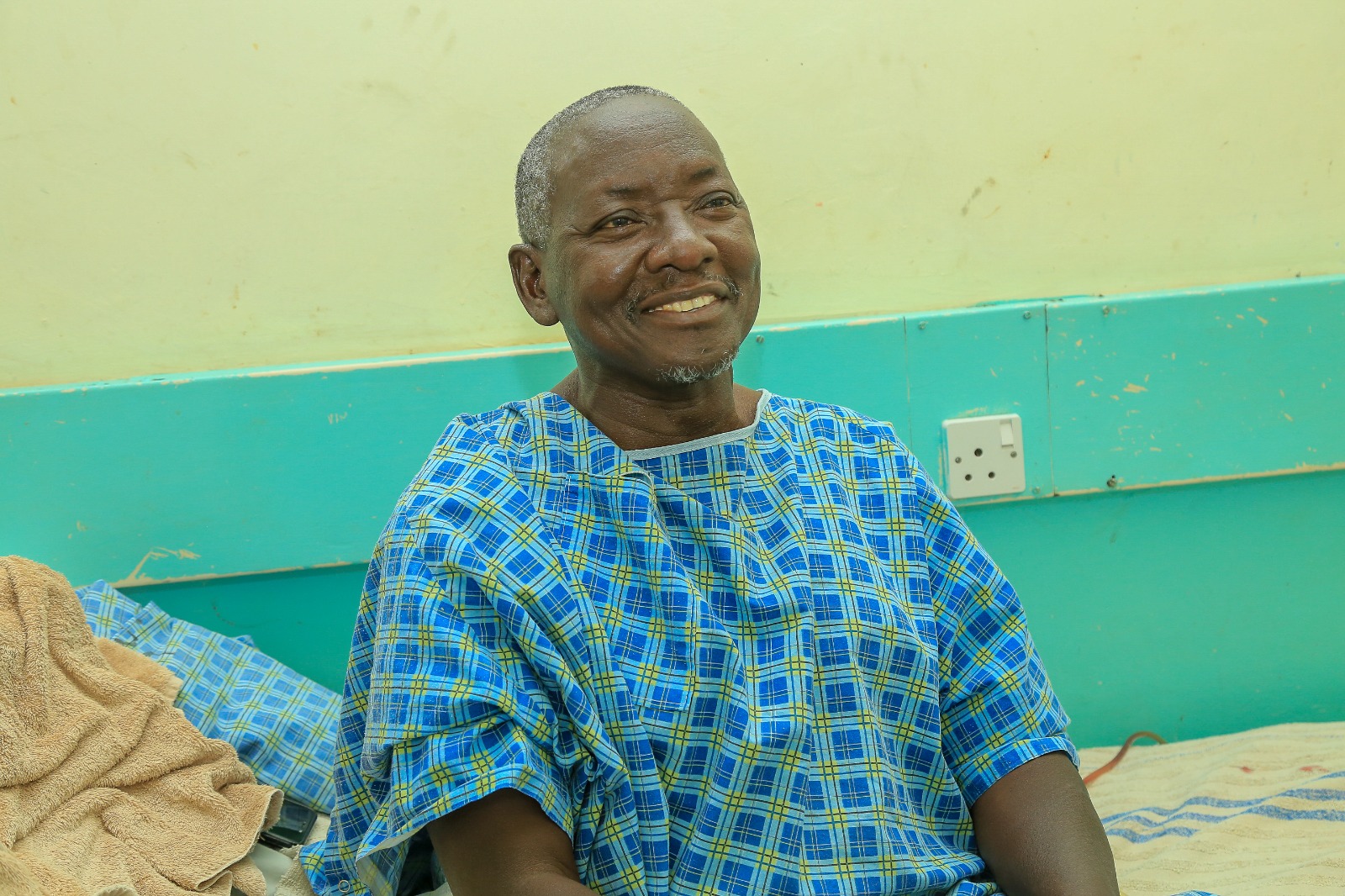

Gilbert Aduda's life had shrunk to a painful routine.
Even simple chores like sweeping his house or walking short distances were impossible, with agonising back pain.
“I couldn’t bend or walk for long without struggling. At times, even lifting a broom was unbearable,” recalls the retired radiographer from Homa Bay.
Once a familiar face at Jaramogi Oginga Odinga Teaching and Referral Hospital where he worked until his retirement in 2018, Aduda, 67, returned not as a medic but as a patient desperate for relief.
For nearly 15 years, he managed his condition with painkillers, only for the pain to rebound stronger each time.
Earlier this year, his back pain escalated to the point where he could barely move.
Determined to find lasting relief, Aduda sought care from Dr James Obondi, an orthopaedic surgeon at JOOTRH, who had been monitoring his condition.
An MRI scan in August revealed severe lumbar complications affecting nerves L2 to L5.
He was referred to JOOTRH neurosurgeon Dr Lee Ogutha, who was preparing for the September neurosurgical camp in partnership with the Kisumu Neuroscience Initiative.
With the support of his daughter, Aduda was screened and booked for surgery during the camp which runs from September 8 and 18.
Despite warnings from others who feared spinal surgeries, his medical background gave him the courage to go ahead.
“Many people told me that back surgery would leave me in more pain. But I told them that even without surgery I was in pain and couldn’t walk properly. It is better to undergo the operation and give the nerves a chance to come back to life,” he says.
This week, Aduda underwent surgery. For the first time in years, he woke up without the crippling pain that had defined his daily existence.
“I feel relieved. What I feel now is just mild surgical pain, but the unbearable pain is gone. I am hopeful that I will get back to living a normal life again,” he said with a smile, adding that he has already begun physiotherapy.
For a man who struggled to perform basic household duties, the operation marks the beginning of a new chapter.
JOOTRH chief executive officer Joshua Okise said the camp, now in its seventh year, is part of an ongoing collaboration between the hospital and visiting neurosurgeons who volunteer their expertise.
“This initiative started several years ago as part of corporate social responsibility. It has become a lifeline for patients with spinal, trauma, and other neurosurgical conditions,” he explained.
The current camp, which began earlier this week, runs for one and a half weeks.
On average, three to six surgeries are performed daily, with a target of 34 to 40 cases by the end.
By day three, more than a dozen patients had already undergone operations.
All procedures are offered free of charge, though patients are required to be registered under the Social Health Authority. Once registered, no extra payments are needed.
The hospital currently has only one resident neurosurgeon, Dr Ogutha, through a partnership with Maseno University.
Okise noted that attracting additional specialists to the region has been difficult, making the visiting doctors’ support crucial.
“The demand is very high. Without these partnerships, many patients in this region would not access such care,” he said.
He also appealed to the public to donate blood, emphasising that many of the operations involve heavy blood loss.
INSTANT ANALYSIS
For patients like Aduda, the camp represents more than just surgery , it is a chance to reclaim dignity, independence and hope. “I believe I will soon be able to carry out homestead activities with ease. The debilitating pain is finally behind me,” he said, grateful that the hospital he once served has given him a fresh start. The camp, which is held twice a year in April and September, continues to attract patients from across the Lake region, offering life-changing interventions that would otherwise be out of reach.















